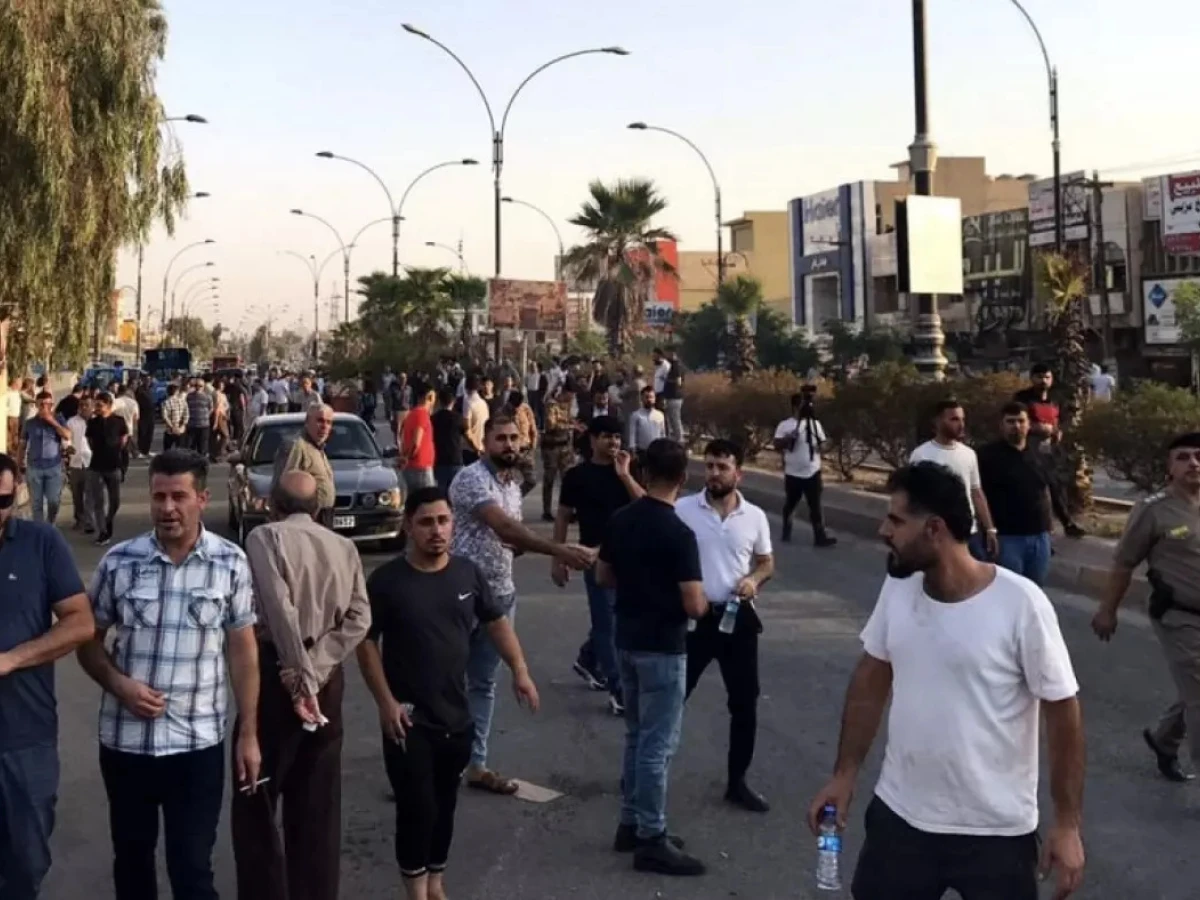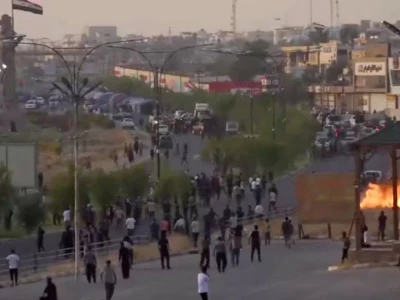
Protester killed, dozen wounded in clashes in Iraq city of Kirkuk, police say
Kurdish forces controlled Kirkuk city after driving Islamic State out in 2014 but were ejected by the Iraqi army in 2017.
BAGHDAD, Sept 2 (Reuters) - A protester was shot dead and a dozen wounded on Saturday during clashes between ethnic groups in the northern Iraqi oil city of Kirkuk that broke out after days of tensions, security forces and police said.
The dispute centres on occupation of a building in Kirkuk that served as the headquarters for the Kurdistan Democratic Party (KDP) in the past but which the Iraqi army has used a base since 2017.
The central government plans to return to the building to the KDP in a show of goodwill but Arab and Turkmen opponents set up a camp outside the building to protest last week.
The violence was sparked when a group of Kurdish protesters approached the camp on Saturday, police said.
Security officials and police in the city say they were investigating the circumstances of how a protester - a Kurd - was killed, and who opened fire. People from both protest groups were wounded as stones were thrown and metal bars used to attack, said Kirkuk police.
Prime Minister Mohammed al-Sudani ordered a curfew in the city to prevent an escalation of the violence, and called on all "political parties, social organizations, and community leaders to play their part in preventing strife and preserving security, stability, and order," according to a statement from the prime minister's office.
Kirkuk, a flashpoint oil-rich province in northern Iraq along the fault lines between the Kurdish autonomous region and areas controlled by Iraq's Shi'ite-dominated central government, has been the focus of some of the country's worst post-Islamic State violence.
Kurdish forces controlled Kirkuk city after driving Islamic State out in 2014 but were ejected by the Iraqi army in 2017, bringing the city back under Baghdad's control.
When Sudani took power last year, he worked to improve relations between his government and the KDP and agreed to allow the KDP to reopen its headquarters in Kirkuk.
But Arab residents and minority groups who said they suffered under Kurdish rule, such as the Turkmen, have protested the KDP's return.




